The above content is mentioned in the document sent by the Ministry of Education and Training to schools on the implementation of the program "Developing human resources for the semiconductor industry to 2030, with a vision to 2050".
Specifically, according to the Ministry of Education and Training, schools need preferential policies, including scholarships, tuition exemptions, financial support, dormitory accommodation and other preferential policies and support for students of semiconductor training programs. At the same time, strengthen cooperation with businesses operating in the field of semiconductor chips, in seeking financial support or granting scholarships; create conditions for students to practice and intern at businesses and be recruited after graduation.
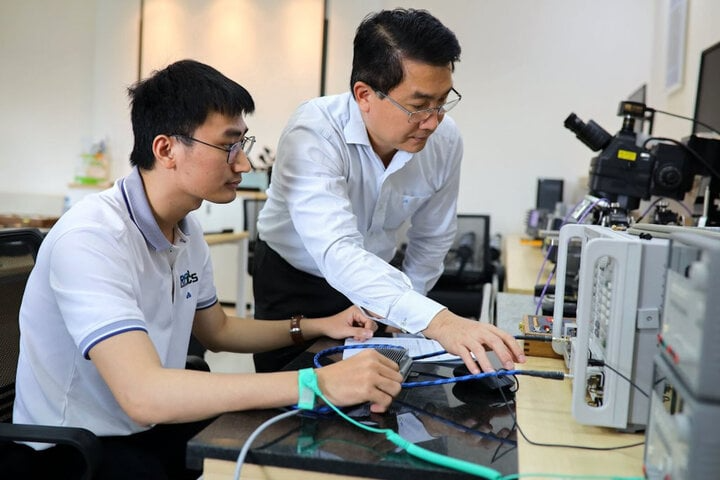
The Ministry of Education and Training has proposed that schools exempt or reduce tuition fees for semiconductor students. (Illustration photo)
Regarding the development of teaching staff, the Ministry recommends that schools prioritize sending lecturers to study for doctorates and post-doctorates in specialized fields of semiconductors at prestigious training institutions around the world.
In addition, there is a need for policies to attract foreign lecturers and experts, overseas Vietnamese working at training institutions, research facilities and businesses operating in the semiconductor industry abroad to work.
Regarding infrastructure development, it is necessary to focus on mobilizing maximum resources from the state, businesses and training institutions to develop learning materials, laboratories and practice rooms on semiconductors.
The Ministry of Education and Training requires universities to develop high-quality human resource training programs in all three stages of the semiconductor industry (design, manufacturing and testing, packaging), and ensure enrollment in quantity and quality.
Vietnam is currently considered a potential market for the chip and semiconductor component manufacturing industry. According to data from the National Science and Technology Information Portal, by the end of 2023, the country will have more than 5,500 chip design engineers. The human resource demand for Vietnam's semiconductor industry is 5,000 - 10,000 engineers/year, but the capacity to meet is less than 20%.
The "Semiconductor Industry Human Resource Development" program aims to have at least 50,000 trained personnel with university degrees or higher by 2030. By 2050, Vietnam will have a strong workforce, joining the global semiconductor industry value chain, meeting development requirements in both quality and quantity.
It is expected that 18 public universities will be given priority to consider investing in basic semiconductor laboratories.
Source: https://vtcnews.vn/bo-gd-dt-de-nghi-cac-truong-mien-giam-hoc-phi-cho-sinh-vien-nganh-ban-dan-ar912956.html
















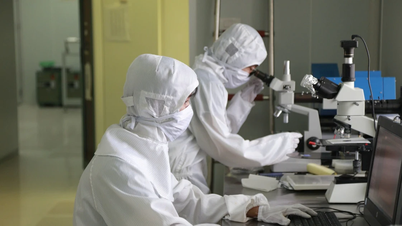




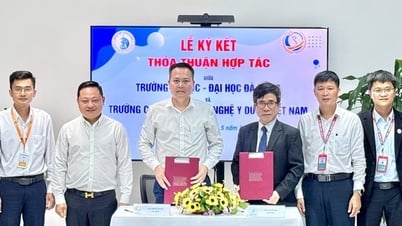
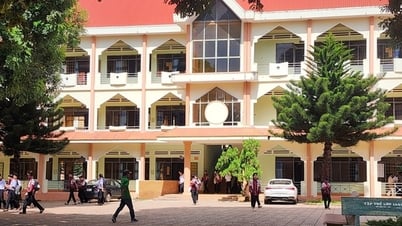








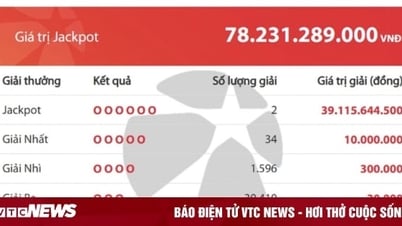



![[Photo] General Secretary To Lam meets with Chairman of the Federation Council, Parliament of the Russian Federation](https://vphoto.vietnam.vn/thumb/1200x675/vietnam/resource/IMAGE/2025/5/10/2c37f1980bdc48c4a04ca24b5f544b33)
![[Photo] Ho Chi Minh City: Many people release flower lanterns to celebrate Buddha's Birthday](https://vphoto.vietnam.vn/thumb/1200x675/vietnam/resource/IMAGE/2025/5/10/5d57dc648c0f46ffa3b22a3e6e3eac3e)





























































Comment (0)